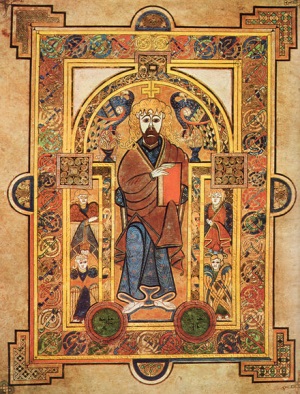
Celtic Mythology is a foundation stone supporting, along with the language, music and dance, our collective Celtic identity. “The Oxford “Dictionary of Celtic Mythology” by Dr. James MacKillop can be considered one of our primary reference texts. The author is a former Professor of English at Syracuse University, former visiting Fellow in Celtic Languages at Harvard University and is past president of the American Conference for Irish Studies.
Published by Oxford University Press in 1998, this work boasts over 4,000 alphabetised entries on deities, sacred places and the personalities associated with the Celtic revival and ancient texts. The entries are presented in a range from succinct definitions to comprehensive narratives. Included is a brief and lucid “Pronunciation Guide” to the modern Celtic languages. The modern Celtic tongues have branched over the millennia in to two language groups. This guide sets apart the Goidelic pronunciations of Manx, Scottish Gaelic and Irish versus that of the Brythonic pronunciations of Cornish, Breton and Welsh.
Celtic Mythology is rooted in the Oral traditions of the six Celtic nations and in surviving manuscripts. Too few texts have survived the savagery and wanton destruction directed at the Celts over the centuries during the emergence of the modern nation states of England and France. The surviving written Celtic source documents are due to accidents of history and geography, mainly Irish and Welsh in origin. The reasons for this are deftly placed into context by MacKillop in the introduction: “The phrase ‘Celtic texts’ in this volume refers primarily to those written in the Irish and Welsh languages. Irish is the oldest written vernacular in Europe, with a literary tradition possibly beginning in the sixth century, with the coming of the Christian scribes, that has produced hundreds of narratives. Written Irish-language literary traditions survived the coming of the Anglo-Normans (1169), the flight of the native aristocracy (1607), Cromwellian pogroms (the 1650s) and in to the eighteenth century. Welsh literary traditions, for all its artistic splendour begins several centuries later, long after Christianity was well established and exists in much smaller volume. A third, much more modest written tradition exists in Gaelic Scotland, related to old Irish...and continued by distinguished seventeenth and eighteenth century bards.”